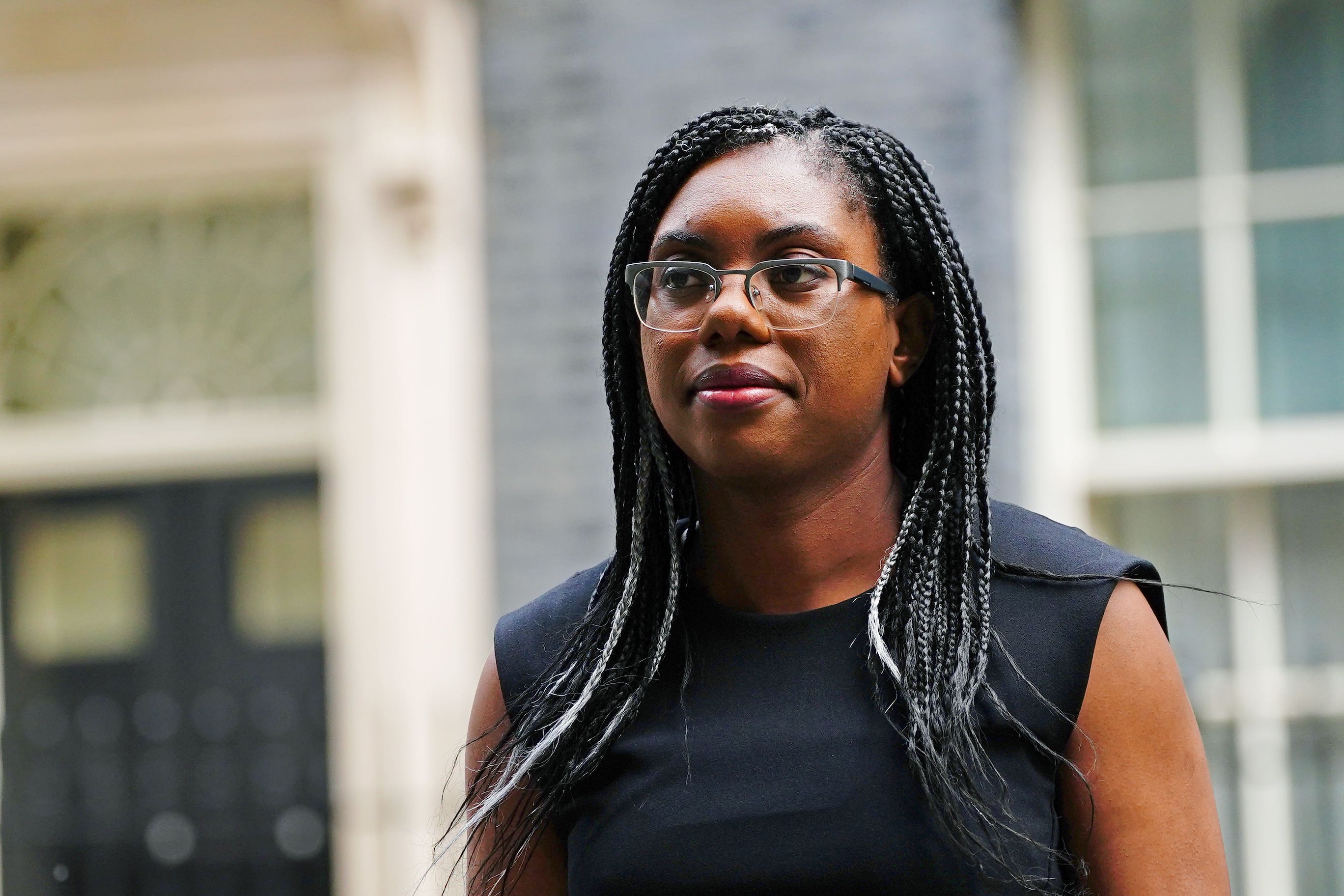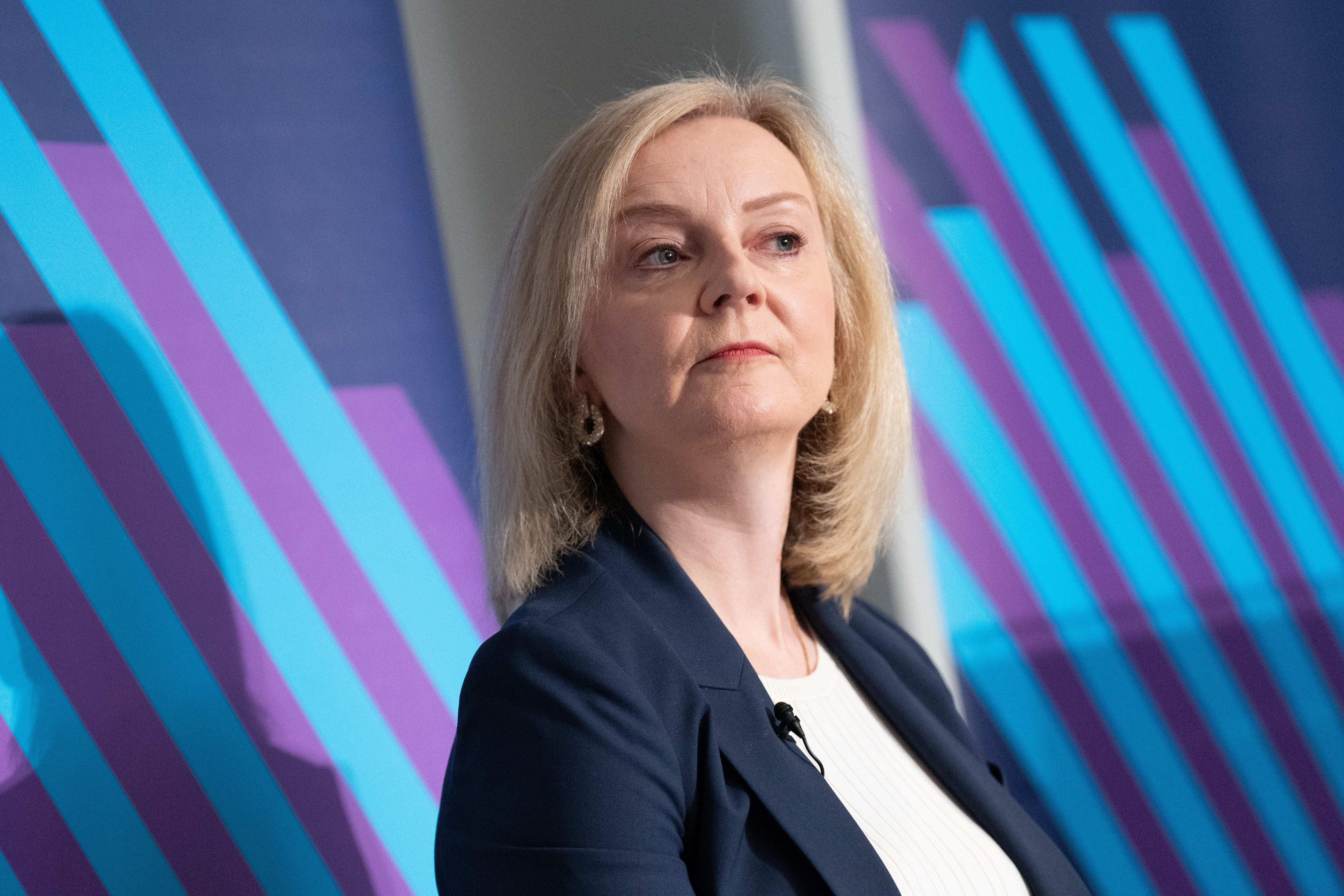Teachers can’t be forced to use pupils’ chosen pronouns, says government
Teachers have been told they need not accept all requests for social transition, but many have suggested the guidance does not go far enough
Teachers will not be compelled to use pupils’ preferred pronouns or accept a child’s request to socially transition, the government’s long-awaited transgender guidance for schools has said.
The draft document, from the Department for Education, states that children, teachers or staff at schools in England should “not be required to adopt the use of preferred pronouns”.
But Rishi Sunak is facing a backlash from Tory right-wingers angry that it does not bring in a complete ban on social transitioning – the process when pupils change their names, pronouns and clothing.
Former Tory prime minister Liz Truss said it “doesn’t go far enough” and will let trans rights activists “exploit loopholes in the guidance … to pursue their agenda”.
A government source fired back at Ms Truss for “shameful political grandstanding” – arguing that Tory MPs undermining the guidance would leave schools at “mercy of activist groups like Stonewall”.
Former home secretary Suella Braverman also attacked the “serious weakness” in the guidance that “enables social transitioning to take place in schools”.
The right-winger also condemned the “disappointing” decision to allow pupils to use “preferred pronouns in some circumstances”. In a series of tweets on X, Ms Braverman said that “much more needs to be done before we can be confident that children are protected”.

A leading campaign group welcomed the guidance and said though the guidance is imperfect, it represents a major step forward for schools and teachers.
The guidance says on the “rare occasions” where a school or college agrees to a change of pronouns, no teacher or pupil should be compelled to use them. It says teachers should still be able to refer to children collectively as “girls” or “boys”.
The advice also says that teachers should consider if a pupil’s request to socially transition has been “influenced by social media” or their “peers”.
Schools are under no obligation to provide gender-neutral facilities. The guidance says they should provide separate toilets for boys and girls aged eight and above – and changing rooms and showers for boys and girls who are aged 11 years or over at the start of the school year.
The guidance says all children should use the toilets, showers and changing facilities “designated for their biological sex unless it will cause distress for them to do so”.
Kemi Badenoch, the equalities minister, said the guidance would give teachers and school heads “greater confidence” when dealing with an issue “hijacked by activists misrepresenting the law”.
The cabinet minister added: “It makes clear that schools do not have to accept a child’s request to socially transition, and that teachers or pupils should not be pressured into using different pronouns.”
Schools are said to risk successful legal challenges if they follow parts of the guidance, according to advice from the government’s own lawyers, published by Schools Week. But it was still signed off by No 10, Ms Badenoch and education secretary Gillian Keegan.
The lawyers at the Department for Education (DfE) are said to have warned that there was a “high risk of a successful legal challenge to position taken on pronouns”. They also advised “that operating a presumption against social transitioning would be unlawful”.
A government spokesperson said they do not comment on leaks, adding: “The guidance is lawful and will help schools navigate these complex and sensitive issues, by urging caution, parental involvement, and prioritising safeguarding at all times.”
Stonewall, the LGBTQ+ charity, condemned the plan, calling it “not fit for purpose”. The trans rights advocacy group said there was “considerable evidence” that allowing social transition “improves the mental health of trans children and young people”.
However, Maya Forstater, executive director of the rival, gender-critical group Sex Matters, largely welcomed the changes. “This guidance, though imperfect, sets the global standard for uprooting trans ideology from schools.”
She added: “No other country that has allowed the trans lobby to dictate lessons and school policies has moved so decisively to reverse course.”

Some on the Tory right are unhappy. Ms Truss said it “does not go far enough” and leaves children “at risk of making irreversible changes and with single-sex spaces not sufficiently protected”.
Ms Truss has put forward her own legislation that would mean social transitioning is not recognised by schools or the state in children and puberty blockers and hormone treatment for gender dysphoria would be banned for under-18s.
Jonathan Gullis MP, former schools minister, said: “This fudge from the government is wholly unacceptable, leaving teachers vulnerable to attacks from those who try to impose their extremist gender ideology onto young minds.”
A government source, who accused Ms Truss of “shameful grandstanding”, told The Independent: “Anything further would have taken far longer to complete, be at risk of hostile amendments in parliament, and let schools become the political plaything of zealot MPs.”
A Labour spokesperson said they would “look carefully” at the proposals – but accused Tory ministers of using “this issue again and again to further their own leadership ambitions”.
No 10 said the government could still change the guidance. “We will listen carefully to the views of those who work in the sector and beyond,” said Mr Sunak’s official spokesman.
Teaching unions said headteachers will continue to be placed in a difficult position – arguing that the trans guidance leaves many “questions unanswered”.
Paul Whiteman, general secretary of school leaders’ union NAHT, said: “School leaders will continue to be placed in an incredibly difficult position.”
The Association of School and College Leaders (ASCL) said it would be reviewing whether the guidance is “clear and deliverable and whether it places extra workload on education staff”.
Ms Keegan – thought to have pushed for a less hardline stance than Ms Badenoch – claimed the guidance would remove “any confusion about the protections that must be in place for biological sex and single-sex spaces”.
The education secretary added: “Parents’ views must also be at the heart of all decisions made about their children, and nowhere is that more important than with decisions that can have significant effects on a child’s life for years to come.”
Join our commenting forum
Join thought-provoking conversations, follow other Independent readers and see their replies
Comments
Bookmark popover
Removed from bookmarks